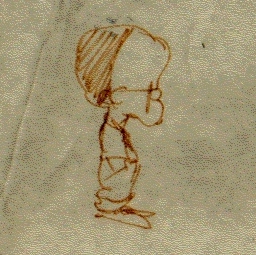- Blog/
How To Say Thank You
Periodically, I go on a language learning kick, and each time it’s easier, especially now with all the free apps. Right now, I’m cranking through Mandarin with the Memrise app (I’ve lowered my expectations; I’m not going for fluency, just to restore my one-year college course profiency). It reminds me I wrote this blog ten years ago (and got a comment from a Hawaiian shirt store).
On a recent tour of LA Chinatown, I was surprised to hear several shopkeepers say “xie xie”, the Mandarin thank you (and just about the only Mandarin I know). I’ve always thought of Chinatown’s as populated with Toison and Cantonese speakers. But maybe they assumed I was a tourist — I was the only one sporting a Hawaiian shirt, shades and a Stargate SG-1 baseball cap.
Even though utterances of xie xie are wasted on me, it still drives me crazy to hear the pronunciation mangled. It’s not that difficult, setting aside inflection (one battle at a time) — it more or less rhymes with “yeah, yeah”, yet many, like sports reporter Jim Gray during the 2008 Olympics, pronounce it “chichi”, or sometimes “shay-shay”. It was an Olympic highlight for me when IOC president Jacque Rogges pronounced it correctly at the closing ceremonies. But he’s a polyglot.
I guess once you’re past a certain age, it’s hard to add flexibility to your speech, especially if you’re starting with a strong accent (although I’m sure to some extent accent is in the eye of the beholder — every time I move I’m told I have an accent — a California accent?). I recall in a Wellesley Chinese course (there to meet girls but all I got was slightly improved Mandarin comprehension), a student from the South had a terrible time speaking with precise inflection. Although after living in Boston and Dallas, I’d say Southerners are much better at dropping their accents and speaking TV English than New Englanders (where’d all those r’s go?) Interestingly, among my foreign-born colleagues, the best speakers of accent-less 90210 English are Scandinavian.
In a Orange County Computer Society talk on the One Laptop project, Alan Kay, in response to a question about his opinion on bilingual education, said there are studies indicating that learning multiple languages in childhood improves flexilibility in thinking in other areas. So perhaps those English as an Official Language advocates (which strikes me more as a “I don’t want to hear any more Spanish” movement) should worry more about making sure American kids can speak internationally. But if English does become “official” (please, let’s not end up with something like Quebec’s language law), I look forward to the outlawing of text-message spelling (“OMG!”), sportscasters overusing “thus far”, mispronunciations like “nucular”, misuse of words like “systemic” for “systematic”, long-standing mis-words that won’t go away (“irregardless”, “flammable”), and horrendous new ones like “pretexting” and “ginormous”.

